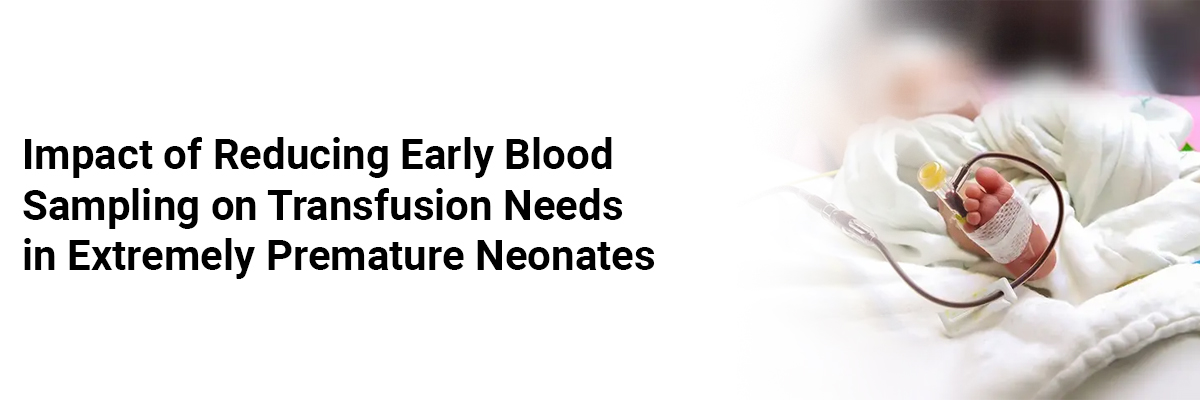
 IJCP Editorial Team
IJCP Editorial Team
Impact of Reducing Early Blood Sampling on Transfusion Needs in Extremely Premature Neonates
A recent study investigated the impact of blood sampling stewardship on transfusion requirements among extremely premature infants. The study included infants born at less than 28 weeks of gestation and with a birth weight of less than 1000 grams, who were randomized into two groups: restricted sampling (RS) or conventional sampling (CS). The RS group received targeted interventions to reduce blood sampling volume and frequency using point-of-care testing methods during the first six weeks after birth, alongside early recombinant erythropoietin administration from day three of age.
Key observations from the study include:
- Enrollment of
102 infants with high adherence to the sampling protocol in 95% of cases.
- Significant
reductions in sampling losses during the first six weeks in the RS group
compared to the CS group.
- A notably lower
rate of early postnatal red blood cell (RBC) transfusions in the RS group.
- A 55% reduction
in the hazard of requiring a transfusion during neonatal intensive care
unit (NICU) stay in the RS group.
- Similar rates of mortality and neonatal morbidities between the RS and CS groups.
This
study underscores the importance of minimizing blood sampling losses in the
early weeks after birth for extremely premature infants weighing less than 1000
grams. By reducing sampling-related stress on these vulnerable neonates, the
need for early RBC transfusions can be significantly decreased, potentially
improving overall outcomes in this high-risk population.
Balasubramanian H, Bhanushali M, Tripathi V, et al. Effect of
Minimization of Early Blood Sampling Losses Among Extremely Premature Neonates:
A Randomized Clinical Trial. The Journal of Pediatrics. 2024;269. DOI:https://doi.org/10.1016/j.jpeds.2024.114002

IJCP Editorial Team
Comprising seasoned professionals and experts from the medical field, the IJCP editorial team is dedicated to delivering timely and accurate content and thriving to provide attention-grabbing information for the readers. What sets them apart are their diverse expertise, spanning academia, research, and clinical practice, and their dedication to upholding the highest standards of quality and integrity. With a wealth of experience and a commitment to excellence, the IJCP editorial team strives to provide valuable perspectives, the latest trends, and in-depth analyses across various medical domains, all in a way that keeps you interested and engaged.






















Please login to comment on this article